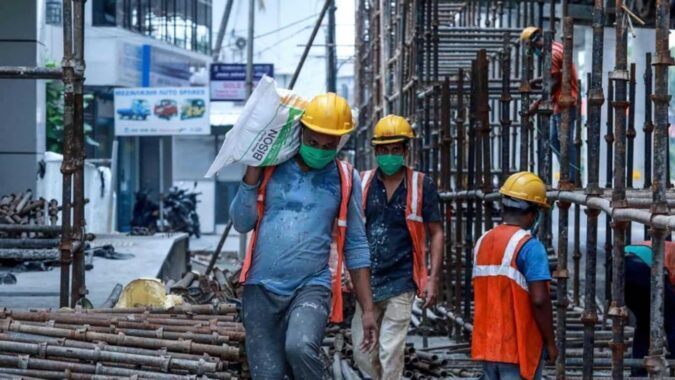India’s economic expansion likely slowed in the October-December period, as rising borrowing costs crimp consumption that’s a key growth driver.
Gross domestic product probably rose 4.7% last quarter from a year ago, according to a median estimate of economists in a Bloomberg survey ahead of data due Tuesday at 5:30 p.m. local time. That will be the slowest quarterly performance since the 4.09% expansion in the three months ended March last year.
Also Read | The Indian economy: Past, present, future
Economists are projecting growth of 6.9% for the fiscal year from April 2022 to March 2023 — a tad below the government’s prior 7% estimate and slightly higher than the International Monetary Fund’s 6.8% projection.
“There are signs that higher interest rates are feeding through to the real economy,” said Shilan Shah, a senior economist at Capital Economics in Singapore, citing falling passenger vehicle sales and slowing retail transactions. “This suggests that consumption has weakened a touch.”
Also Read | Number theory: How will a global slowdown affect the Indian economy?
Waning consumption, which accounts for 60% of GDP, risks hurting growth in Asia’s third-largest economy, as borrowing costs rise. The Reserve Bank of India has increased interest rates by 250 basis points since May to tame inflation and signaled it isn’t ready to pause just yet, amid growing dissent within the rate-setting panel.
“My fear is that all sources of demand in the economy are contracting at the same time,” Jayanth Rama Varma, an external member of RBI’s Monetary Policy Committee, said in a recent interview.
With exports struggling on waning global demand and the government forges ahead with fiscal consolidation, Varma said rising borrowing costs will dent household budgets and, in turn, consumption. For Shashanka Bhide, another rate setter, demand in the economy is fueling inflation.
What Bloomberg Economics Says…
With the recovery on shaky ground, we think any further tightening would amplify downside risks to growth.
— Abhishek Gupta, senior India economist
There might be more pain in store as interest rates go up further and consumer activity in India’s key export market — the US — loses steam.
“Exports have slowed in the December quarter as the global economy hits the brakes,” said Pranjul Bhandari, chief India economist at HSBC Holdings Plc. “There were pockets of resilience,” he said, citing investment, improving rural economy, and goods outperforming services.
That’s helping India pull off a relatively strong performance in a tough environment where even China indicators are pointing to an uneven recovery despite its reopening. India is poised to expand at the world’s fastest pace in the fiscal year starting April, according to the IMF.
“A resilient domestic backdrop and continued increase in services activity continued to prop up India’s growth,” said Rahul Bajoria, an economist with Barclays Bank Plc.
